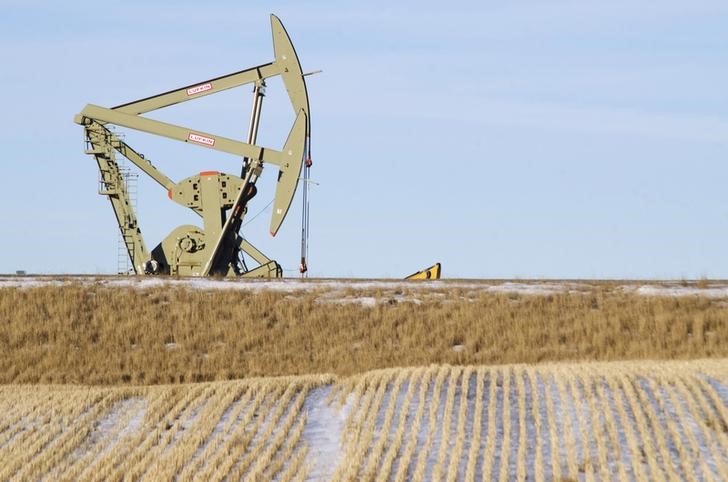* U.S. sanctions against Iran's fuel exports start
* Washington grants temporary waivers to key buyers
* Iran says it will break sanctions and still sell oil
* U.S., Russia, Saudi output rises: https://tmsnrt.rs/2Rua0R8
* Analysts say demand could slow amid economic downturn
By Christopher Johnson
LONDON, Nov 5 (Reuters) - Oil prices fell on Monday as U.S. sanctions against Iran's fuel exports were softened by waivers allowing major buyers to import Iranian crude for a while, while Tehran said it would defy Washington and continue to sell.
Brent crude oil LCOc1 was down 15 cents a barrel at $72.68 by 1030 GMT. U.S. light crude CLc1 was 30 cents lower at $62.84 a barrel.
Both oil price benchmarks have lost more than 15 percent since hitting four-year highs in early October, as hedge funds have cut bullish bets on crude to a one-year low, data show. imposed sanctions against Iran on Monday, restoring measures lifted under a 2015 nuclear deal negotiated by the administration of former U.S. president Barack Obama, and adding 300 new designations including Iran's oil, shipping, insurance and banking sectors. response, Iranian President Hassan Rouhani said in a speech broadcast on state TV that Iran would break the sanctions and continue to sell oil. has granted some exemptions. The United States said on Friday it will temporarily allow eight importers to keep buying Iranian oil.
"U.S. sanctions against Iran ... created serious concerns with traders earlier in September. But they are turning into a damp squib," said Fiona Cincotta, market analyst at City Index.
Washington has so far not identified the eight. China, India, South Korea, Turkey, Italy, the United Arab Emirates and Japan have been the top importers of Iran's oil, while Taiwan also occasionally buys Iranian crude. Korea said on Monday it had been granted a waiver, at least temporarily, to import condensate, a super-light form of crude oil, from Iran. It was also allowed to continue financial transactions with the Middle East country, it said. foreign ministry spokeswoman Hua Chunying expressed regret at the U.S. decision, but would not directly say if China had or had not been granted an exemption.
Oil markets have been anticipating the sanctions for months and the world's biggest producers have been increasing output.
Joint output from the world's top producers - Russia, the United States and Saudi Arabia - in October rose above 33 million barrels per day (bpd) for the first time, up 10 million bpd since 2010.
In the Middle East, the Abu Dhabi National Oil Co plans to increase its oil production capacity to 4 million bpd by the end of 2020 and to 5 million bpd by 2030, it said on Sunday, from output of just over 3 million bpd. REUTERS SUMMIT-No bull territory: Trading houses see lower oil prices in 2019
GRAPHIC: Russian, U.S. & Saudi crude oil production
https://tmsnrt.rs/2CTwqaq GRAPHIC: Crude oil prices have fallen since October
https://tmsnrt.rs/2P8BZsZ
^^^^^^^^^^^^^^^^^^^^^^^^^^^^^^^^^^^^^^^^^^^^^^^^^^^^^^^^^^^>
